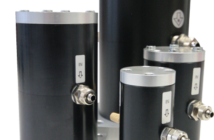Over the past month, there has been some discussion about the irradiation of food that is sold in New Zealand.
By Professor Steve Flint, School of Food and Nutrition, Massey University, Palmerston North.
If you look around a New Zealand supermarket, it is hard to find any food products that have been processed by irradiation. A limited range of fruit that has been treated by irradiation can be found in some supermarkets and this appears to have caught the attention of the public.
The key question is why do we need to irradiate our food?
The principle answer for New Zealand is for biosecurity – to protect our country and our economy from pests such as the Queensland fruit fly. The strength of the horticulture and agriculture industries on which our economy is based, is due to the enviable position of freedom from many of the pests that plague the rest of the world.
Another reason for irradiating food is food safety
Irradiation is one of several processing methods, such as heat treatment, that we can use to ensure that food is safe. Irradiation as a food processing method has been well studied by the Food and Agriculture Organisation and the World Health Organisation and is an approved method for food treatment in more than 50 countries. In the US, products such as chicken and beef patties, which have caused serious food poisoning outbreaks, largely due to poor cooking, are treated with irradiation to reduce the risk of food poisoning.
Irradiation of food uses gamma irradiation to kill insects or microorganisms in the food. It has been studied for more than 50 years and the scientific consensus is that it is safe. The treated food appears and tastes the same as the untreated food.
Food manufacturers/distributors use irradiation to ensure that they can export products to countries, such as New Zealand, that have strict biosecurity controls that would limit their ability to sell their products. They also see irradiation as a method to help ensure their products are safe. As with any processing method, irradiation treatment adds to the cost of the food manufacturer/distributor. The food industry uses such processing methods to reduce risk. As with any food processing method, the food that is irradiated must be of good quality – irradiation will not improve the quality of the food.
In New Zealand, the Ministry of Primary Industries requires that all foods that have been treated with irradiation are labelled indicating that they have been irradiated. This is to allow people to make their own informed decision on whether or not they choose to purchase irradiated products. This is no different to any other form of labelling where the public are informed about the product.
In the future, we can expect more irradiated foods on the New Zealand market.




























































































